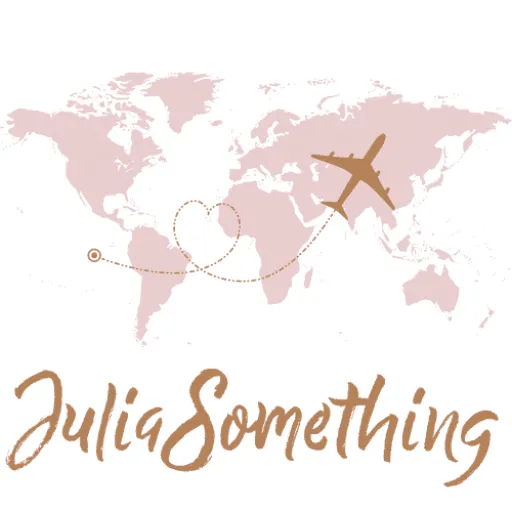2020 has been a crazy ride. So it’s time to look at some ways how you should travel to Europe in 2024 while taking the least amount of risk.
We all can agree that 2020 has been a crazy ride, and the crisis doesn’t seem to end anytime soon. I’m no expert in politics or climate change, so I will just talk about the topic I know best – travelling! And how you can travel in 2024 while taking the least amount of risk.
Since the coronavirus outbreak, many travel plans have been shattered, flights have been cancelled, and entire regions and even countries have been locked down without setting a precise date for when things will resume.
Truth be told, most countries and popular tourist destinations have declared a state of emergency and decided to close down borders, letting only their own nationalities in. Most of the time, people have been advised, to say the least, to stay at home.
Travelling has suddenly become a non-existent topic because there is no place to go and everything is closed anyway.
That’s why many people believe that they will not go on holiday this year or that they will travel only within the borders of their home country.
But if travel conditions are getting loosened by governments, what should you do to make sure you travel with the minimal risk possible in 2024?
How do you travel with the minimal risk possible in 2024?
That’s a hard one.
Travelling is a delicate matter, and nobody is advising international travel at the moment.
However, here are the main recommendations that I (and everyone else) urge you to follow if you are considering travelling in the near future.
Travel with minimal risk and check the travel conditions of your destination
Just because there is a cheap flight to a desirable destination doesn’t mean that you are able to go.
Check the country’s current travel policy, official travel websites, and local police sites.
Are they receiving tourists? Is your country/region/city on the list of the allowed tourists?
Don’t trust what others are saying, as it turns out that people love to have opinions about things they know nothing about. They’re called “opinionated millennials” and have no clue what they’re saying most of the time.
Check everything. Trust no one!
I speak from personal experience.
It’s better to ask a thousand questions than to pretend you know everything.
Book directly from an airline
If you want to travel by plane, booking a flight can be done via numerous flight aggregators (I personally prefer Kiwi), which can result in better fares and extra services and insurance.
I would also recommend getting travel insurance for your trip, in case you don’t have one.
BUT!!! Take into account the unprecedented situation we are in and that almost all flights and travel plans have been cancelled in March 2020!
That’s why many aggregators have dropped their cancellation/support/extra warranty policies. They are facing major financial losses and have to deal with millions of clients who ask for their money back.
Nobody knows what policy to apply for this unusual situation, and many ask their clients to wait until they solve the case with the airline.
Basically, the aggregators are sole intermediaries that make no money at the moment and have to deal with an immense volume of work.
Some don’t even answer their emails or phones, while others send emails like “Don’t call us! We’ll call you (when we have news),” and this can take months, up to 1 year!
That’s why I strongly advise you to book directly from the airline (for now and near future travels), because at least you will know where to go to ask for a rebooking or refund.
Many airline companies have new policies regarding re-booking and offer to waive any extra fee they were charging before in case you decide to postpone your trip for a future date.
I strongly recommend checking the airline’s conditions and policies in this matter. They all have a banner on their home page about the Coronavirus situation. Read that!
For instance, Lufthansa was offering a free one-time re-booking for any flight, regardless of the travel fare or original conditions, until December 2020. If the flight got cancelled, they offered to rebook it for free until January 2021, with any travel date up to December 2021.
But remember that each airline has different policies, and you have to be aware of them now more than ever.
If you’re planning a Europe trip, check out Colibra.
Colibra is the app that will claim compensation for any airline delays for you without any hassle. All you need to do is to scan your boarding pass. Read my blog about Colibra and how to claim flight delays with the app.
I’ve always said that planning for a trip will help your budget, but I’d never thought it would get to this level. And yet, here we are.
Book free cancellation accommodations
And since flights can still get cancelled or rescheduled, then make sure you book your accommodation accordingly.
Luckily, there are many hotels that offer this option, especially since the whole thing with Coronavirus happened.
I know for a fact that Booking can’t help you get reimbursed from prepaid hotels if the hotel doesn’t want to reimburse you. And they don’t.
What you need to do is to search for free cancellation hotels or maybe contact them directly. I use Booking for most of my trips, and while non-refundable accommodations are cheaper, I wouldn’t take the risk considering the current situation.
Purchase travel insurance to address any travel-related risks
There has never been a better reason to get travel insurance than it is right now.
The issue is that you need to check the policy of the travel insurance and check whether or not it covers coronavirus medical expenses or trip cancellations.
If you travel within your home country, you should focus on travel insurance that offers you a refund if the flight gets cancelled. But if you plan to travel internationally, you need to check also the boxes for medical coverage.
Some travel insurances state that they cover any reason type of cancellation, while others exclude such reasons, especially if there is an international warning against travelling.
I have a credit card that is supposed to grant me travel insurance, but a world-announced pandemic is listed as a reason not to pay any insurance in case you get sick. I discovered that by reading the fine print on their website.
What kind of travel insurance should you look for?
Look at its refund terms, and understand what’s offered and what’s not. Look for a “Cancel for any reason” travel insurance, which will be more expensive (around 10-12% of your trip’s costs) but can reimburse you up to 75%.
Check out these top 3 insurance plans that cover COVID-related issues and more.
Whenever in doubt, try calling the support centre. That’s what I do.
Stay away from large gatherings
This is a no-brainer.
Don’t attend large gatherings.
Yes, most countries have banned them anyway, for the time being, but we all know that what’s legal can sometimes be different from what’s happening in real life.
Stay at a distance and protect yourself and others by doing so.
In the end, think about all the massive concerts, events, and music festivals that have been cancelled. They can’t be all crazy.
Stay clean and take precautionary measures
You’ve heard this so many times that by now, you just ignore this message whenever you see it, but do not forget about the importance of clean hands.
Wash your hands, especially when entering a building, after using public transport, or touching stuff outside your home.
Don’t touch your face. Actually, this is a habit we have to embed in our minds because touching our faces all the time is terrible anyway.
Keep your distance, regardless of where you are. At the supermarket, at the bank, at the airport.
Some don’t like people too close to them anyway, and while you are not sick and the people around you look healthy, you don’t need to breathe the exact same air as the person in front of you.
As a reminder…
If others do it, it’s not a sign that it is a good thing to do.
And obviously, don’t travel if you have any symptoms of Covid-19 or any other sickness.
Travelling when you feel sick is the absolute worst thing you can do to your body.
As a reminder, the general symptoms of Covid-19 are a runny nose, sore throat, cough, fever, and difficulty breathing (in more severe cases).
But no matter the cause of your sickness, you have to avoid travelling. For your sake and for everyone else around you.
Not only will everyone avoid you, and you will most likely be asked out of public transport, shops, or any kind of indoor space, but you will feel terrible, and you will probably feel physical pain.
Trust me, I had food poisoning in Morocco, and because everyone made fun of me, I decided to join the group for a day trip, which I later discovered to have been the absolute worst day of my life.
While not all of this is news, we need constant reminders of how things can go wrong, both financially and health-wise.
That’s why you need to take into consideration all of the precautions I listed above when looking to book your next trip with the least amount of risk.
The tourism agencies are desperate for money, and the airlines are doing everything they can to come back from the 2020 tourism crisis.
In the EU, the tourism industry generates 10% of the total GDP, and each summer generates over 190 billion Euros spent on leisure trips.
The temptation is big, but make sure you take minimal risks while travelling in the summer of 2024.
PS. Here are some of my best tips for travelling cheap in Europe.








Really good tips thank you so much for these!
You’re welcome! I hope it helps (especially those who are just starting to travel).